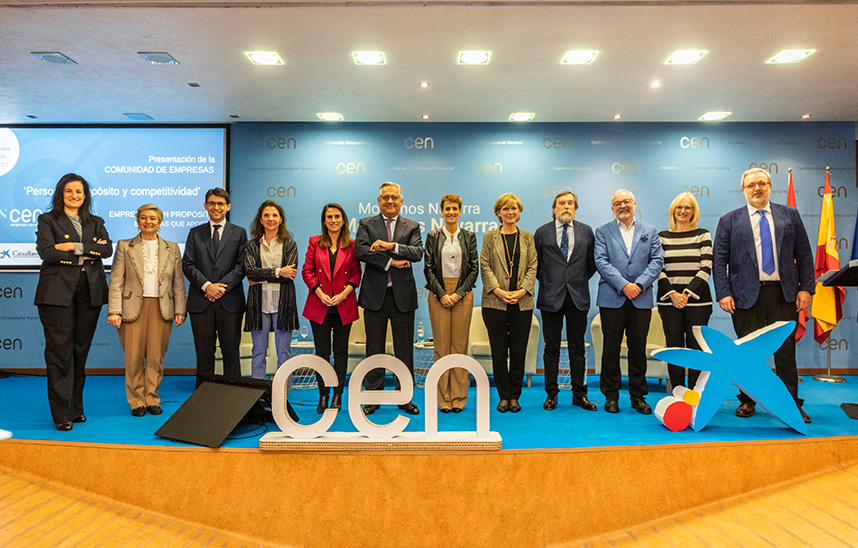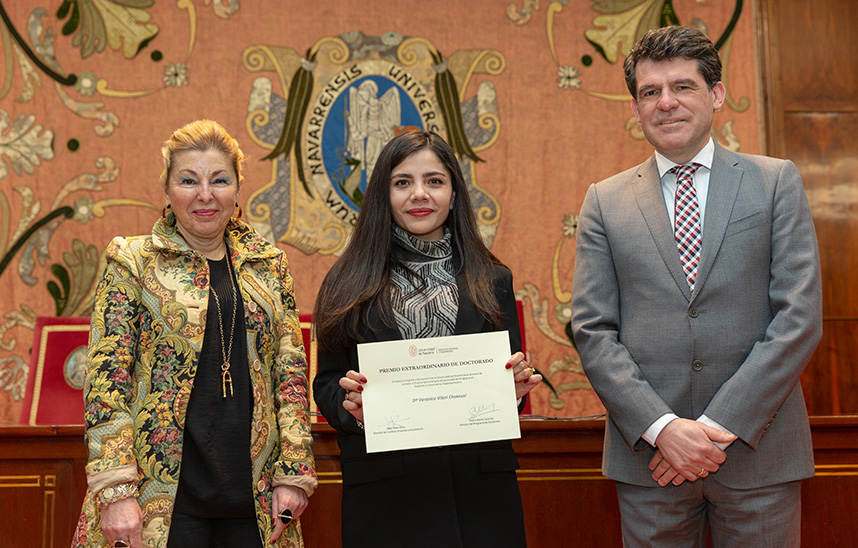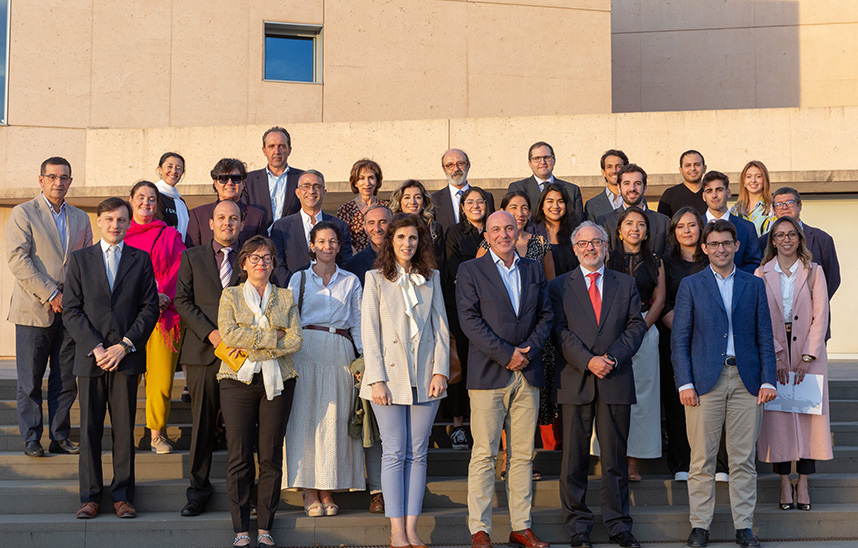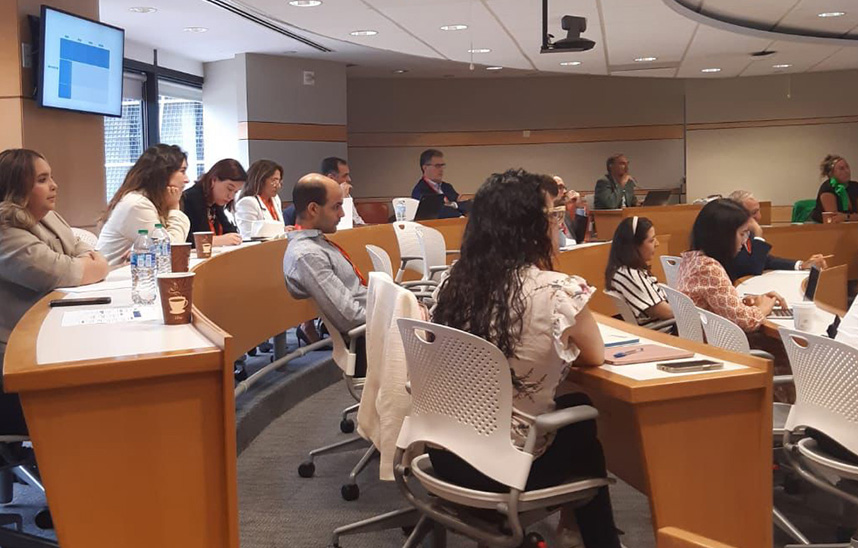Aviezer Tucker, Harvard professor, spoke on neo-liberalism, populism and democracy at the University of Navarra.
The meeting took place in Madrid at the framework of the annual conference of high school business and Humanism.
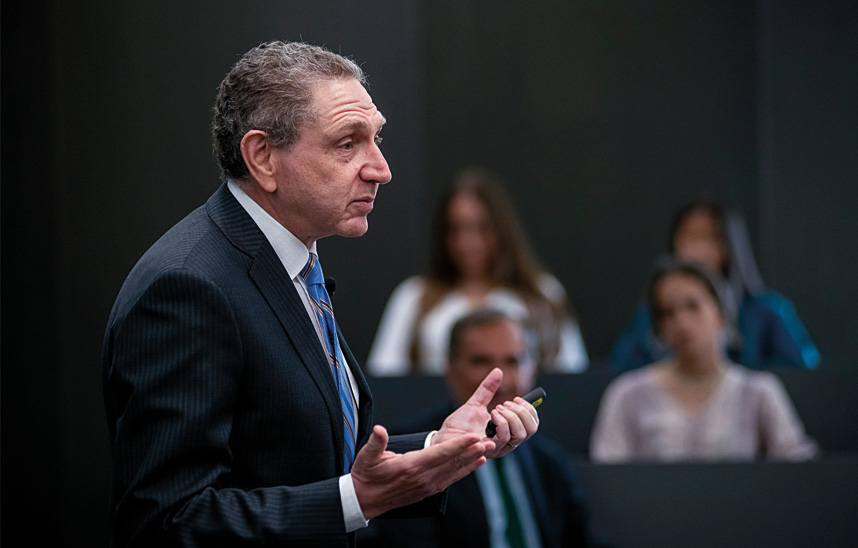
13 | 05 | 2022
Aviezer Tucker, professor at the Davis Center for Slavic programs of studyand the Harvard School of Governing Body of the University, gave a lecture on "Neo-liberalism, Populism and Democracy" at lecture.Neo-liberalism, Populism and Democracy"at the frameworkof the traditional conferenceorganised annually by the high school business and Humanism of the School of Economics. Professor Tucker was introduced by Andrés Sendagorta, President of SENER and Vice-President of high schoolbusiness and Humanism.
Tucker reflected on the paradox of the recent authoritarian and populist drifts of liberal democracy in the West. Over the past decade, Tucker noted that "the West has experienced an unstoppable progression of populisms, whose ideological foundation is a revision of democracy, not its radical questioning". According to the Harvard University professor, "it should surprise no one that democracies can become dangerously illiberal, since this has been experienced throughout history, and became especially dangerous in the inter-war era, with the unleashing of communism and Nazism". Indeed, this was one of the classic criticisms of the old democracies. Is the contemporary reaction against liberal democracy simply the same old story, or are we witnessing something unprecedented? Tucker invited the audience to reflect on and debate the repercussions of an illiberal and populist drift of democracy, with all the paradoxes associated with it.
The American intellectual argued that "the contemporary renaissance of authoritarian populism skilfully combines some very socially established traditions with new technologies" to produce a highly unstable and contagious new synthesis that threatens basic liberal norms, from freedom of the press to independent judiciaries. His reflections examined how the economic crisis blocked the social mobilityand thus aroused political passions exploited by the new political demagogues. This slide towards "neo-liberal democracy" can be countered, Tucker noted, by restoring a "liberalism without nostalgia", based on a calm but objective view of the past, with a genuine desire to learn from the lessons of history. In this sense, Tucker called for a "consolidation of political and legal institutions that will help to quench populist passions and strengthen liberal institutional barriers against them".
After the lecture, Jaume Aurell, Full Professor of medieval history and director of the Master in Culture and Government of Organizations of the University, read a text glossing some ideas developed by Professor Tucker in his speech, emphasizing the need to seek solutions to the complex realities of contemporary society, which require the subject of interdisciplinary and possibilistic analysis postulated by Tucker, and that fits so well with the spirit of high school business and Humanism. This was followed by a discussion in which some of the attendees formulated their own ideas. One of the main conclusions reached was that we must always bear in mind the experiences of the past, so as not to repeat the same mistakes - the parallels of the present era with the dramatic interwar period are all too evident - and build on the progress achieved by those who have gone before us.

